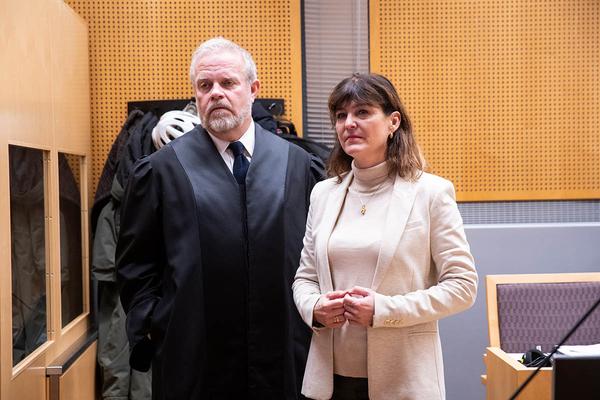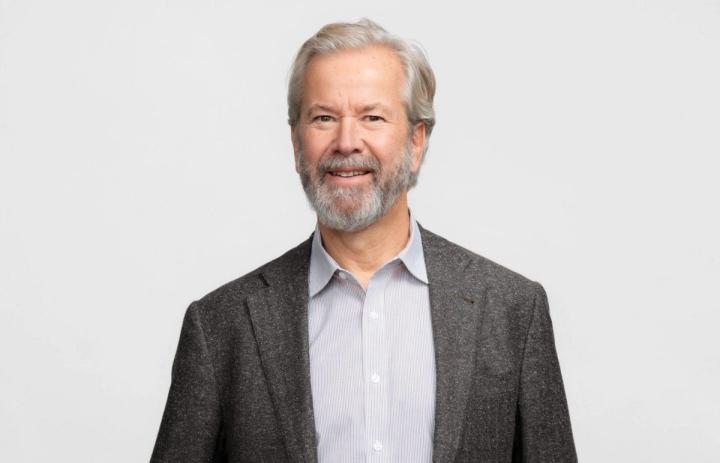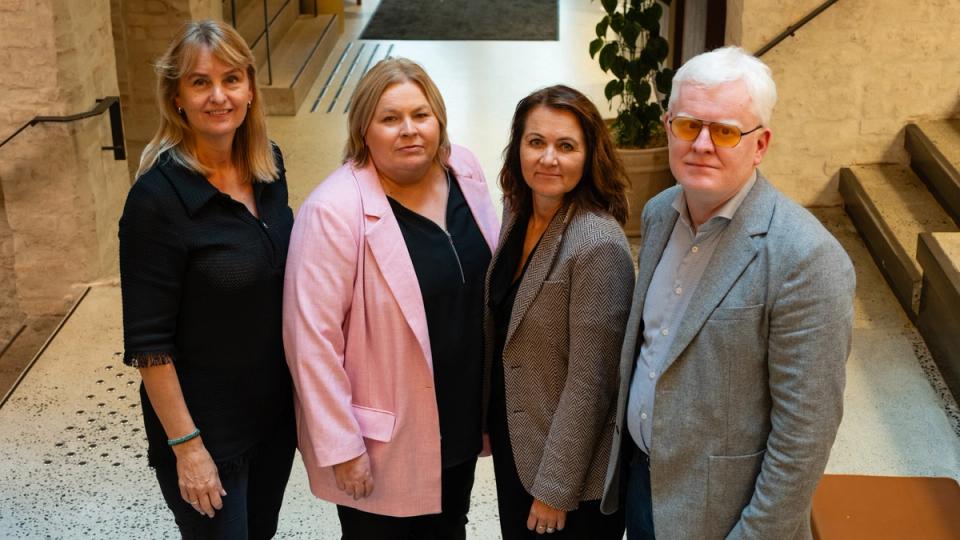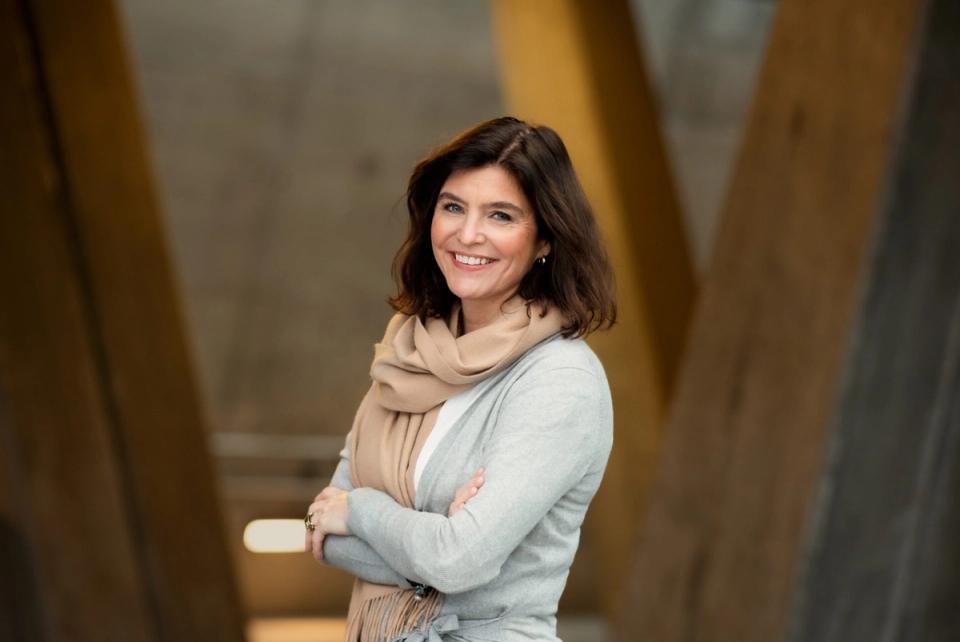1. februar 2008
The current state of freedom of speech
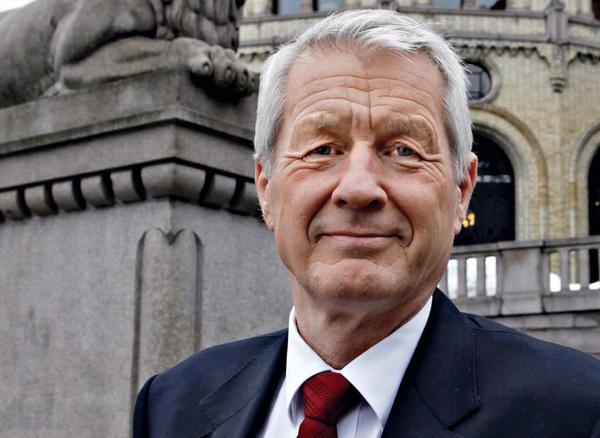
European values in the public sphere By Thorbjørn Jagland, Speaker of the Norwegian Parliament, Secretary General of the Council of […]
European values in the public sphere
By Thorbjørn Jagland, Speaker of the Norwegian Parliament, Secretary General of the Council of Europe and Chairman of the Norwegian Nobel Committee.
Is freedom of speech under threat? I doubt it. Because the problem is not freedom of speech per se, but rather our lack of confidence in our own core values.
In Europe, the public sphere has been a decisive factor in the development of the basic values of democracy: freedom of speech and expression and the free press, enlightenment and critical debate. Reason and knowledge. Jürgen Habermas’ historical theory on the public sphere sees the development of western societies as a combination of three independent and interconnecting systems: the market, the state and civil society.
Civil society, especially, has with its strong public administration and rational and critical opinion-forming been a decisive factor. It produced the ideas of democracy and rights of the individual. To Mr. Habermas, who grew up in Nazi Germany, the rebuilding after the war was a question of understanding the social conditions of rational communication on equal terms. It is the power of good arguments that creates a feeling of community and social development.
Even with violent exceptions such as the world war periods, the public sphere has, with its vital, free and critical testing of ideas, been central in western societies up until the present. Mr. Habermas believes that there is an imbalance in western society today, in that the market and the state are penetrating the third pillar of society, ie. the civil society. Art, culture, media and the public debate are being commercialised.
For as long as we have had what we call a free press, we have discussed whether it is fulfilling its task and how it is impacting society. The relationship between the press and legal protection of the individual is another aspect. Here, I should like to mention that many people have felt that the principle of legal protection becomes invalid when media’s brutal forces are let loose. This has become worse by the strong commercialisation of the press.
The press likes heroes and villains, celebrities on the rise or on the downward slide. That sells everywhere. We can of course object and say that there is something amiss with the people who buy these stories. But it raises the question once more of whether or not the press has a responsibility beyond that of squeezing the last drop of blood out of a story.
News coverage is more than ever focusing on what will sell and concentrating on individual incidents rather than on the underlying causes. Focus is concentrated on politicians as people and what they do rather than on what they stand for and work for. One is looking to expand an issue, not explain it. The difference between the sports coverage on TV, entertainment and political reporting and debate is being erased. The demand is for drama, suspense, greed, deceit, winners and losers. The result is a new and far more restrictive scope of action for politicians and political issues. It weakens political debate, criticism and rational argument.
I remember an anecdote from one of the books of the famous Czech writer Milan Kundera. Mr. Kundera had to flee Czechoslovakia because of the communist regime, he could not stand living there any longer even if it were possible. It turned out that he had been under communist surveillance and his personal life was spilled to the public in order to undermine his credibility.
Mr. Kundera left for Paris to settle there. The first thing he saw when he stepped off the plane was the front pages of French newspapers reporting that the legendary singer Jacques Brel had been discharged from hospital where he had been treated for cancer. Mr. Kundera wrote that he got the feeling that the same evil he had fled from had manifested itself even in the western world, not in the name of communism but in the quest for profit. The integrity and free will of the individual were being violated in the name of the market.
That leads us to Jürgen Habermas’ most important observation. The idea of a free society rests on having a free debate and the debate being independent of the power of commercialism. I am relating this to other aspects of today’s media world that are impairing the role of the press as a disseminator of knowledge and as a basis of free debate.
One thing is the enormous speed currently required in news distribution. The other thing is all the channels that must be filled with content 24 hours a day. I often meet journalists who blatantly demonstrate that they have no idea of the issues they wish to question me about. Their job is to fill the screen for a few minutes, there and then.
But if the purpose of the interview was to disseminate knowledge, then that interview has no value at all. And this brings me to an important issue in today’s media world; The media are incident oriented.
They cover the actual incident, who killed who, grieving family, shocked friends, etc. An incident is often covered without the audience really grasping what the incident is about. Why did it happen? As opposed to the theatre, where the actual stage and the dialogue yield depth and context, the media news distribution is like a row of incidents perpetually passing in review without context or explanation.
It has been said that there is too much news today, so much that we fail to understand what is actually happening. I put it differently: there are too many journalists and too many media covering an incident without quite knowing why. When the market demands that all incidents must be spiced with personal differences, maybe even scandals, we understand perhaps why some people claim that we have reached the end of the age of enlightenment.
My question is whether we are in the process of moving into the age of sentimentality.
When the public sphere is affected in this way, the ability to guard freedom of speech and expression is impaired, and thereby also our democracy. If so, this is alarming considering the cultural conflicts we are facing in our own communities as well as globally. These are problems which need to be faced with wisdom and empathy.
The recent debate on Muslim culture and freedom of speech clearly illustrates the need for a critical press seaking to explain rather than just to expand the issue. At the end of the first decade of the 21st, century, we see that Muslim immigrant cultures are really impacting the European public debate.
Riots in urban immigrant communities in France, the murder of a film director and threats against politicians in Holland and the controversy of Danish cartoons depicting the Prophet Muhammad are challenging the debate. In Norway, we are now seeing that a number of political issues concerning Muslim immigrant cultures are giving rise to fiery debate and political controversy. Although the issues in question are tied to freedom of speech and expression, religion and basic public values, they arise out of one particular situation – immigration and its impact on our communities.
The controversies over the last years indicate that immigration to Europe from Muslim countries is now evolving from being a traditional question of integration to becoming a question of cultural clashes.
Is that an acknowledgement of Samuel Huntington’s theory that the clash of civilisations is a source of conflict in the post-Cold War world? No. It is primarily a reflection of how integration is failing in Western Europe, but also of a political paralysis in the European democracies.
The French philosopher Pascal Bruckner calls the situation in Europe a state of peace, comfort and individual happiness which we are reluctant to give up even if the development in our respective countries should imply active debate and remedial measures. After a historically unique progress from combat zone to modern democracies, we are now suffering from metal fatigue when introduced to cultures which are impacting and challenging our societies.
The 20th century in Europe became the transitional period into the modern age. Despite devastating world wars, communities were raised, class struggles were won, welfare states were built and Europe became the world’s most advanced democratic community of states. This development was, of course, based on the rationality of the big democratic project which has left its mark on Europe and most of the western world; Enlightenment, the free individual, reason and progress. In other words modernity.
Today, the most important effect of modernity is the fact that European states under the rule of law and their respective constitutions are resting safely on human rights. And first among them: freedom of speech and expression.
The European human rights community, as it is rooted in the European Human Rights Convention, is the basis of a rational and humanistic culture of civilisation. We are distinguishing between religion and politics and putting freedom of thought above the church and the word of the scripture.
Society exists for the sake of the individual. This is perhaps the essence of our democracies. No European state can today use its citizens as tools for religions or political ideologies. These are the fundamental and universal basic values that go beyond the individual country’s national cultural characteristics and bind them together. That is our European core.
As a social democrat, I have always considered those values to be crucial for the social democratic project to be so successful in creating a community of solidarity which units liberty for all with equality for the liberty to be real. It was the idea of freedom of speech and expression, critical debate and man’s value and rights which made it possible to raise Europe from the ashes of war and bring forth a moral consciousness of the spirit of community in a number of countries, and which gave us the modern, liberal and solidary community typical of societies today.
For me, as a social democrat, it has therefore always been natural to believe that we are primarily part of a common humankind gathering around universal basic values, and that our evolution must always carry with it and refine these values. This is the fundamental idea of the social and the democratic united in a social democracy.
Today, we see that religions, cultures and traditions are pushing forward in the public sphere in many countries. The integration policy is inadequate, and the debate is moving to another and more uncontrollable issue, namely the question of them and us. It becomes a question of conflict, not integration. That is not a healthy development, and it will be demanding to bring it back on a constructive track. The current situation shows that integration must be about inclusion through language, education and work and about inclusion through our confidence that our core values can also be fundamental in developing a multicultural society. The public debate will be an important instrument in this connection.
There are several reasons for the development we now see. In this connection, I should like to point out two things: the end of the Cold War and globalisation. First, the Cold War. During the Cold War, the world was taken up with the conflict between communism and capitalism. Whether you were for capitalism or for communism, or perhaps saw the world in a north-south perspective, the sense of belonging was unambiguous for most people.
After the distinction between east and west was gone, the old ideologies lost their power. One might think that this would be a transition to an unqualified and final liberation for all. Or, as Francis Fukuyama wrote, to the end of political ideologies. But the end of the Cold War and the collapse of the established ideologies did not lead to final liberation. Instead, it lead to many people seeking to find their identity in religion or in a sense of belonging to an ethnic group.
No one can be free without belonging, wrote the Norwegian sociologist Stein Ringen in connection with man’s need for community. The wish to belong is a fundamental human characteristic. The clash of interest between groups, religions or ideologies, as seen during the Cold War, is often vital to define identity, even if it involves a large degree of irrationality. During the interwar period, Europe became so irrational that it classified the Jews as a major threat and in the end, Europe itself became victim of its own feelings.
Globalisation has now become an integral part of our environment, our way of thinking, our education and our way of working. In short, we live in a globalised world. Globalisation has lead to a tremendous economic growth in many countries, but globalisation yields unequal distribution of wealth.
One consequence of globalisation is the fact that the inequalities become more visible than before. If we also consider the fact that globalisation challenges and changes local traditions, our sense of belonging and our way of thinking, we face a situation by which increasing migration might easily lead to migrant fear. That kind of fear must be addressed and constructively debated in the public sphere.
The way we conduct the public debate in our effort to adapt our societies to the multiculture in progress, may in a worst case scenario impair freedom of speech and expression as our most fundamental right. When our societies are introduced to new cultures, the democratic core values that unite us must be the basis of integration. It is when we relativise our values that we lay the basis for insecurity, which in turn generates fear that something absolute – some absolute core values – may disappear and tear away the foundation of our existence as we know it.
The public debate rests on freedom of speech and expression. If we don’t guard freedom of speech and expression, our ability to discuss immigrant cultures and help migrants get integrated in our liberal and secular cultures will be impaired. Freedom of speech and expression is thus the basis of integration.
The European social democracy is in danger of weakening itself and its basis of existence by its fear of discussing Islamic culture and integration. And social democracy as such will definitely weaken itself by falling into the extreme rightwing populistic trap and promote non-existent enemy pictures of Islam.
The war on terrorism has created antagonistic cultural fronts. But not even that implies a clash of civilisations. The Arabic culture has deep roots and was dominating large parts of Europe and Africa up until the fall of the Ottoman Empire. After that, things went wrong. The Muslim countries were not able to take part in the changes brought on by the Renaissance in the west. Islam was incapable of formulating a modern concept with regard to politics and religion.
It was the breaking away from religion that laid down the basis for the enormous scientific and technological progress that has taken place in the western world. The Islamic world has not been able to make a clear distinction between faith and intellect in the same way, and it has also failed in establishing institutions distinguishing between politics and religion.
Consequently, a great number of immigrants to the western world face societies built on values they don’t know and don’t understand the meaning of. They meet an unfamiliar public culture, and the consequences of freedom of speech and expression and especially criticism of religion may also be hard to accept. In the western world, however, freedom of speech and expression is an institutional right. It is a right we have fought for, and it is the foundation of our evolution.
Criticism of religion is therefore a way of defending the liberal society which is based on reason and knowledge. Consequently, it will be wrong to compromise with freedom of speech and expression in order to adapt our culture to a multicultural everyday life. That would weaken our civil society. On the contrary, we must stand up for a culture that criticises, challenges and looks for unifying ways when it comes to building a multicultural society on the foundations which have already been laid.
We must tell our story. That our societies are basically liberal democracies. That religion and politics are separate. And that freedom of speech and expression means that the state is committed to safeguard the citizens’ right to express themselves. Not the other way around. It is a story that also the press must contribute to defend and relate, because in the end this also concerns the operating conditions of the press. Its right to editorial freedom.
The UN Human Rights Council is now making an attempt to dilute the principle of freedom of speech and expression, or turn it inside out. In 2007, the Human Rights Council, where the inter-governmental organisation grouping 57 Muslim states (Organisation of the Islamic Conference (OIC)) is very influential, adopted a ban on insult of religion as a result of the Danish cartoons depicting the prophet Muhammad.
It is quite obvious that regimes dominating the OIC wish to protect themselves against criticism. An effective way to do this is to ban religious criticism, for with the mixing of religion and politics that we find in some states, religious criticism will be regarded as criticism of the regime.
It has for a long time been the aim of the UN Durban II Conference to adopt a resolution to the effect that religious criticism is a human rights crime. We must hope that the European democracies understand the importance of an unambiguous and clearly worded safeguarding of freedom of speech and expression, and that they do not make any attempt to put restrictions on the most basic heirloom of enlightenment.
The public political exchange is going through a bad patch in Norway, wrote a leading Norwegian newspaper recently. The comment had its background in a heated discussion about whether or not Radical Islam is a threat to Norway. It would, of course, have been unheard of if Norwegian political parties had neglected to fight Radical Islam if it did exist in Norway. The problem was that the debate might give the impression that Radical Islam actually is a problem in Norway. But Radical Islam is not a serious threat to Norway.
However, what is becoming a threat is the fact that the debate about Islam in Norway and in the rest of Europe is getting untidy.
When it involves the different sides of the Muslim culture such as the wearing of hijab, female genital mutilation, forced marriage and radical violent Islamism, it leads to excessive fright. A few days after the debate got off to a fiery start in Norway, the opinion poll measurements showed that one out of every four meant that Radical Islam environments are representing a real terrorist threat to the country. A majority thought that the country was in the process of being “snik-islamisert”, ie. Islamism was being “sneaked in through the backdoor”.
This is where the public debate is showing weakness: when the belief in European ideals is expelled in favour of the fear of Muslim culture. This is where political leaders must take responsibility for the content and development of the debate. Violence, oppression of women and religions wanting to be political issues do not belong here. But by conjuring up an Islamic spectre that doesn’t exist we are in danger of creating confrontation and polarisation instead of integration.
Is freedom of speech and expression in danger? I doubt it. Because there is nothing wrong with freedom of speech and expression in itself, there is something wrong with our own faith when it comes to the survival of our core values when confronted with new cultures. It is us avoiding using the public sphere to debate and criticise female genital mutilation and forced marriage that is a danger to freedom of speech and expression.
That part of Muslim culture has no future in Norway, and this needs to be addressed. A Norwegian researcher recently said that we must offer Muslim immigrants more than just a mixture of understanding, public offices and a little support money. I agree. We must offer them much more, primarily a liberal, secular society rooted in the idea of human rights and sustained by a rational and critical debate. That is what we shall pass on in the public sphere.
Muslim immigrants have a lot to offer Europe. Many of them have been here for a long time, they have worked hard and contributed to the society. The multicultural society is here to stay.
Debating integration is difficult, but the debate must build on our democratic core values. These are values we have fought for and which every European society should safeguard. And these are the values which will form the foundation for the multicultural society which is now evolving in Norway and throughout Europe. By telling that story, we describe what must be the new European we, built on reason and knowledge.
Thorbjørn Jagland is the Speaker of the Norwegian parliament. He was the leader of the Norwegian Labour Party from 1992 to 2002, Prime Minister from 1996 to 1997 and Foreign Minister from 2000 to 2001. Since 2005 he has been Speaker of the Parliament. In 2009 he was appointed the new leader of the Norwegian Nobel Committee.
